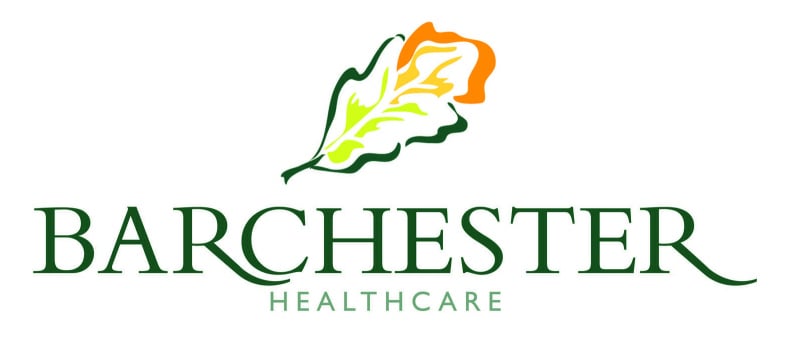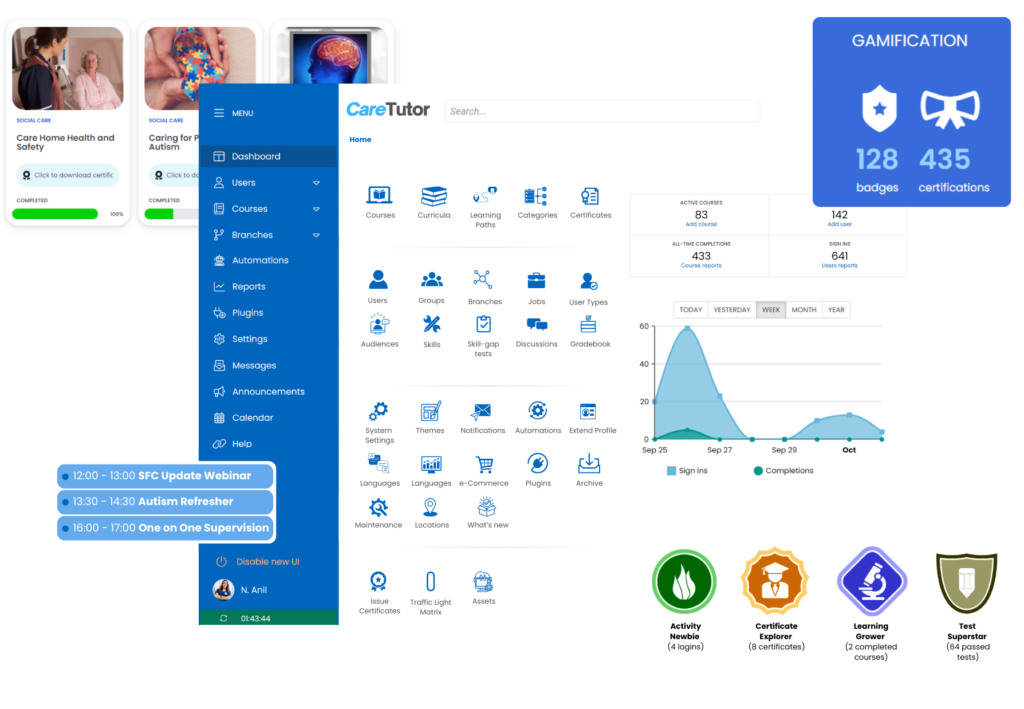Care Sector Information - England
Skills for Care and the CQC
Skills for Care
Skills for Care is an independent charity, which acts as the strategic body for workforce development in adult social care in England by:
- Helping adult social care organisations in England recruit, develop and lead their workforce.
- Working with employers to set the standards, qualifications, skills and knowledge social care workers need to deliver high-quality care.
- Providing practical tools and support.
- Helping create a better-led, skilled and valued adult social care workforce.
The Care Certificate is designed by Skills for Care and is an agreed set of standards that define the knowledge, skills and behaviours expected of specific job roles in the health and social care sectors. It is used by providers of social care to induct and assess members of staff. Care Workers achieving the Care Certificate will be equipped with the skills, knowledge and behaviours to be able to provide quality care.
CareTutor is the only accredited video-based training provider to be endorsed by Skills for Care!
Care Certificate Standards
The Care Certificate standards were updated in March 2025 to align with sector developments and the introduction of the Level 2 Adult Social Care Certificate qualification.
Check out the updated Care Certificate Standards
Learn more about the changes made to the Care Certificate standards
For more information on the Care Certificate, Click Here.
Pathway for Social Care
Skills for Care (SFC) has recently introduce a Care Workforce Pathway for Adult Social Care
The care workforce pathway will set out clearly what a career in social care means and the level of knowledge, experience and skills required to deliver high-quality, personalised, care and support.
It will empower people working in social care to develop themselves and their career by setting out how they can gain skills, access learning and development, and progress in their careers in a way that meets their aspirations.
What has been developed
Skills for Care has been working in partnership with the Department of Health and Social Care (DHSC) to develop the first part of the pathway, which focuses on staff working in direct care roles and outlines an initial four role categories:
- New to Care
- Care or Support Worker
- Supervisory/Leadership
- Practice Leader (developed in partnership with BILD)
Contained within each role category is a defined set of behaviours, knowledge and skills expected of someone to work at that level. The care workforce pathway also demonstrates how someone can develop within each category, building on their knowledge and skills to provide the best possible care to the people who receive their support.
The pathway will take time to embed, and SFC will continue to engage with the sector to identify what further assets and tools may be needed to make sure the pathway supports employers with recruitment, induction and training.
Find further information on the pathway and how it has been developed .
You can also hear more about SFC’s response to the Government’s reform package.
Pathway by CareTutor
To support care professionals upskill and care managers follow the right standards, CareTutor has introduced a feature packed and fully customisable Learning Management System – Pathway.

Our New Enterprise Level LMS
Includes Exciting Features Like:
- Infographics
- Customised Branding
- Full API connectivity
- Microlearning
- Custom Reports
- Connect to HR platforms
- Learning paths
- Unique URLs
- Gamification
- Translation to 70+ Languages
- Auto Enrolment
- Groups of courses
- Unlimited Branches
And a Lot More!
The CQC
The CQC is the independent regulator of health and social care in England. It provides extensive guidance to help providers to comply with regulations, the full contents of which can be found at the link below.
Regulations for service providers and managers – Care Quality Commission (cqc.org.uk)
In terms of staffing, the CQC requires health and social care providers to:
– Have sufficient numbers of workers who are suitably qualified and competent, with the necessary skills and experience to meet the needs of the individuals receiving support.
– Provide care staff with support, training, professional development, supervision and appraisals that are necessary for them to carry out their role and responsibilities.
– Support care staff to obtain further qualifications and provide evidence, where required, to the appropriate regulator to show that they meet the professional standards needed to continue to practice.
The CQC have the power to take regulatory action such as refusing registration should these elements not be in place or if social care providers fail to provide satisfactory evidence that they will continue to comply.
CareTutor helps care providers to meet CQC inspection requirements for staff training with management reports, including a Traffic Light Training Matrix, which can be exported and shown to CQC inspectors.
Get in touch to learn more about our Pathway LMS
As trusted by
As trusted by














Sign up for offers
Join our mailing list and stay up-to-date on our news, access free resources and receive special offers.









